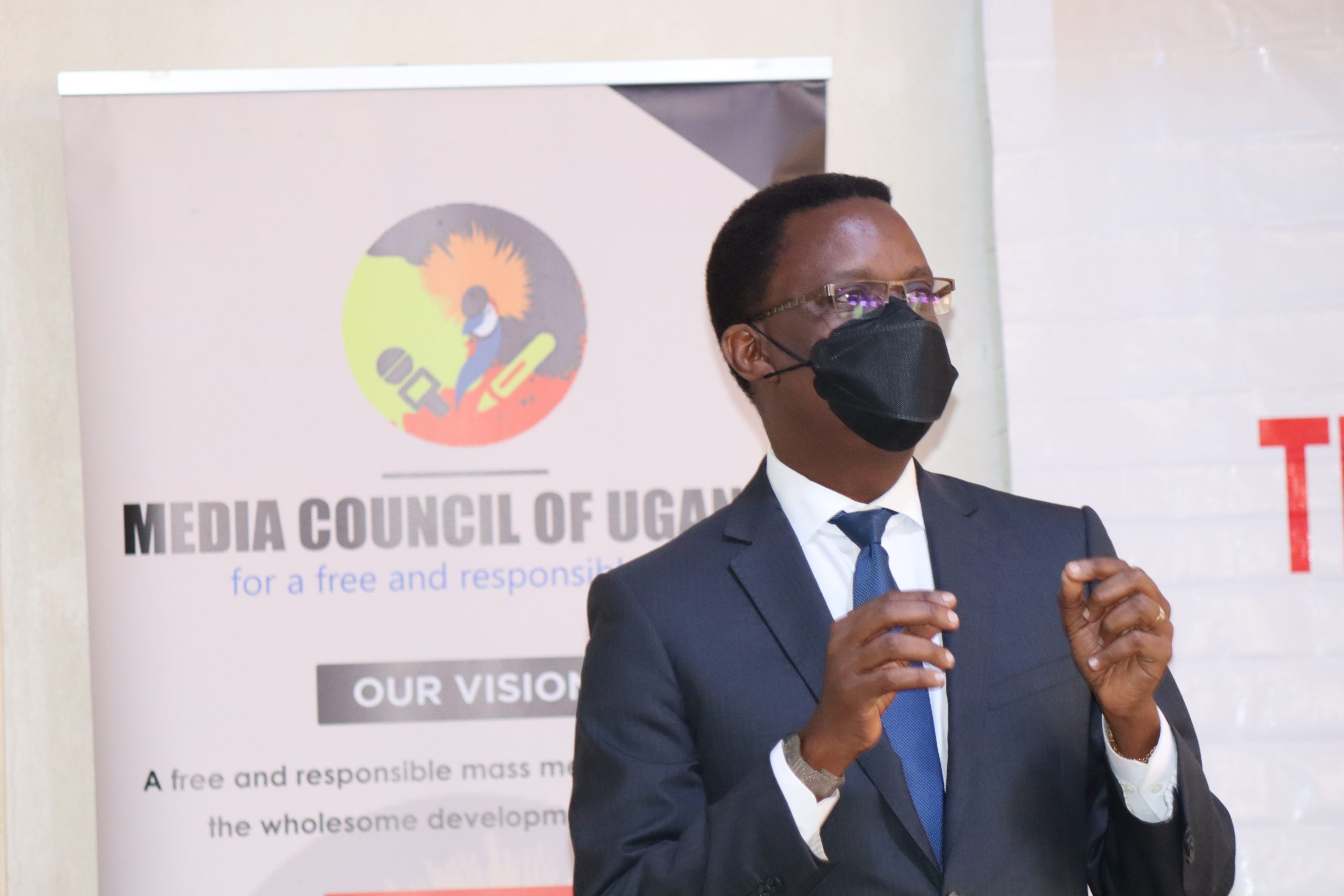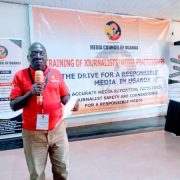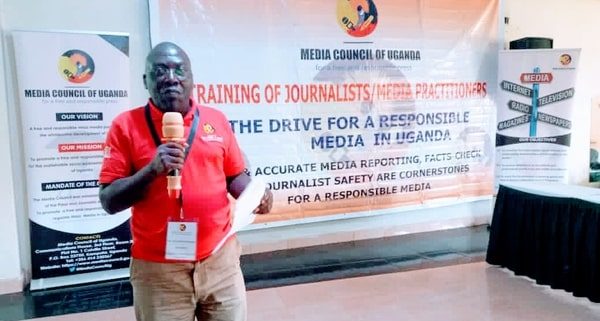KABALE– The Chairman of the Media Council of Uganda Paulo Ekochu has underscored the importance of having vibrant and professional media practitioners in order for them to meet the challenges of modern technological needs in the media industry.
Ekochu made this revelation while addressing the journalists who were attending a 2-day media engagement meeting at Kirigime Guest House in Kabale Municipality organized by the Media Council of Uganda under the theme, ” The drive for a responsible media in Uganda”.
He said that the Media Council of Uganda established by Section 8(i) of the Press and Journalists Act has the mandate to promote a free, responsible press and regulate the mass media in Uganda.
He reminded the participants that Uganda is the only country in Africa that has allowed freedom of speech to thrive but this has given loopholes for some people to go against established guidelines to promote free media practices.

The Chairman of the Media Council of Uganda Paulo Ekochu addressed the journalists
He however said that there are many challenges that have emerged with technological advancement which the media practitioners must come into terms with in order to be able to deliver accurate information to the masses.
The Secretary of Media Council of Uganda David Kyetume Kasanga told the journalists that the media practitioners need to do their work within the confines of the established laws thus calling upon the media owners and managers to ensure that they understand the legal framework of their operations in order to operate without hindrance.
Kyetume enumerated several legal framework procedures that media owners and practitioners must follow, such as registration of their media houses and acquisitions of an operational permit all of which are in accordance with the established laws.
Trainers who included JB Wasswa from Makerere University said that Uganda’s media will thrive if the practitioners practice their work professionally without reporting issues that mislead the general public.
Other trainers included Charles Odoobo Bichachi, the Public Editor of Nation Media Group who asked journalists to account for their work and what they feed the general public, while a member of the Media Council of Uganda Peter Okello Jabweri told the journalists to practice journalism based on professional training.
Others included Gerald Businge from Ultimate Media Consults who took the journalists through digital media practices and asked them to always distinguish between factual from fake news.
Richard Mugwisagye, from the Uganda Police Force, asked the media practitioners to follow established laws when practicing their work to avoid confrontation with security forces while the head of Legal Services in Uganda Communications Commission Abdul Sallawu Waiswa asked journalists to do their work within the confines of the law.
The training which attracted participants from Kisoro, Rubanda, Rukiga, Kabale, Rukungiri, and Kanungu will come to climax on Thursday afternoon after an award of certificates to over 100 journalists from both print and electronic media.





